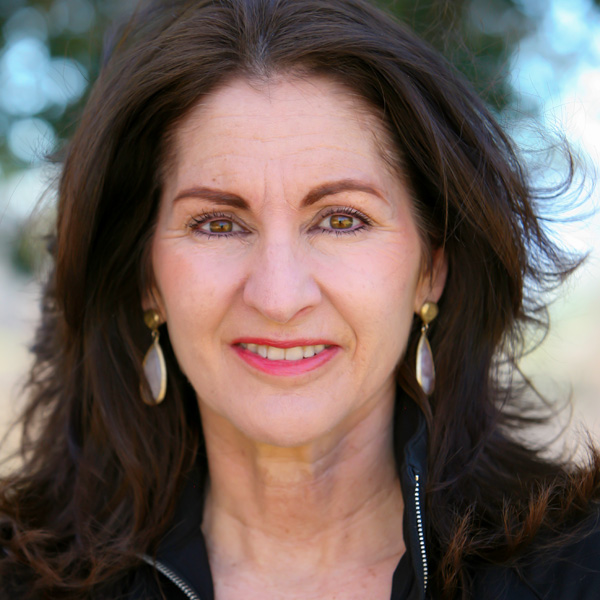It is estimated the average adult makes over 30,000 decisions per day! Let that sink in a moment. 30,000 is one-third the capacity of most NFL stadiums. It is the approximate acreage of Disney World. There are about fifteen miles in 30,000 steps. The average person lives to be about eighty-two years old- which is approximately 30,000 days. That is a lot of decisions to make in adult life!
 Most of these decisions are made subconsciously. We don’t think through the process of which arm to put into our coat first, we just do it. It’s not a conscious decision to put down the phone and stretch, it simply happens. These are decisions we’re making subconsciously all day long. If you find that subconscious habits are affecting your well-being, Agoura Christian Counseling can help guide you toward healthier choices.
Most of these decisions are made subconsciously. We don’t think through the process of which arm to put into our coat first, we just do it. It’s not a conscious decision to put down the phone and stretch, it simply happens. These are decisions we’re making subconsciously all day long. If you find that subconscious habits are affecting your well-being, Agoura Christian Counseling can help guide you toward healthier choices.
While researchers haven’t nailed down the number of subconscious vs conscious decisions we make each day, we’re making a lot of both. When a couple gets married, the decision-making process for everyone must shift and change. No longer is each person thinking about decisions for themselves, these decisions shift to choices for “us” and “the family.” This can be a difficult process for couples.
Decision-making for couples can become even more difficult when decision fatigue sets in. Today we’re going to look at what decision fatigue is and how it affects couples. We will also discuss how marriage counseling can help with decision fatigue and help couples learn to make decisions together. Hopefully, these will help you and your spouse to make more informed decisions as you find God’s will for your life.
What is decision fatigue?
The phrase decision fatigue has come onto our radars much more in the last five years or so. It seems to be a mounting problem in modern life. This may be due to internet and social media use, increased stress in the home and workplace, or any number of other factors. What is clear, however, is that decision-making appears to be more difficult for people.
 Decision fatigue is when we face emotional and mental strain over making a decision. It can occur during seasons where a lot of decisions have been made in a short amount of time. It’ll also show up when making decisions during periods of high stress, transition, trauma, health concerns, overwhelm, and other similar scenarios.
Decision fatigue is when we face emotional and mental strain over making a decision. It can occur during seasons where a lot of decisions have been made in a short amount of time. It’ll also show up when making decisions during periods of high stress, transition, trauma, health concerns, overwhelm, and other similar scenarios.
At its most basic, decision fatigue is an inability to decide, resulting in intense emotional and mental difficulties. We may find ourselves experiencing this over small daily decisions like what to eat for breakfast or over big decisions like accepting a new job. This can happen to individuals, couples, and families.
How decision fatigue impacts couples
When a couple is struck with decision fatigue, it often increases conflict. It often shows up during times of high-stress and difficulty. So, both partners usually find themselves dealing with decision fatigue at the same time. Then the couple has found themselves stuck with a decision, or multiple decisions, to make and no ability to do so.
When only one partner is struggling with decision fatigue, it can also affect the marriage. The other spouse may feel frustrated or impatient as they wait for a decision to be made. They may not be able to understand why it is so hard for their spouse to just make up their mind. This is often a source of conflict, pain, and struggle in marriage.
It’s important to step back and look at decision-making in God’s eyes. Look on your spouse with compassion for the emotional and mental strain this is causing them. Offer support and resources as much as you can. And consider this quote from The Next Right Thing by Emily P. Freeman next time you and your spouse are stuck in decision fatigue or conflict over a decision:
“Sometimes it looks like you’re going nowhere or that you’re headed in the wrong direction. I’m learning that the decision itself is rarely the point. The point is becoming more fully ourselves in the presence of God, connecting with Him and with each other, and living our lives as though we believe He is good and beautiful. 
“The point is being honest about where you are and what you need and then looking around in your own community for people to walk with you and with whom you can walk. I spent years wishing people would support me only to later realize I was waiting around for something to come to me when I was perfectly capable of going out and getting it.
“I’m convinced God is less interested in where we end up than He is in who we are becoming. Whether we’re employed or unemployed, encouraged or discouraged, filled with vision or fumbling in the fog. More than anything, our Father just wants to be with us. The most common way He shows His “witness” to us is in the actual, physical presence of other people.”
Remember that God wants to be in a relationship with you. God wants to see you and your spouse seeking God’s will and God’s heart. Will we mess this up? Yes. Will we make the wrong choice sometimes? Yes. This is an inevitable part of being a human.
It’s an inevitable part of marriage and parenting. We won’t always get it right. God knows that. God is ok with that. It’s part of us becoming who we are as beloved children of God. It’s part of learning to hear God’s still small voice in our decision-making process.
Seasons of decision fatigue will inevitably come. When they come, we may struggle in our marriages and with our parenting. If we make the wrong choice, that will be revealed in time. God will still use that choice we’ve made to turn it into something beautiful and help us become who God wants us to be.
Nothing is ever wasted in God’s plan for our lives, even if we make a wrong choice. Even if there is immense conflict in our marriage over a decision, God can and will use it for our growth and healing.
Marriage counseling for making decisions
Navigating decision fatigue exhausting. There’s a reason it is called decision fatigue. Couples often find themselves at a breaking point when conflict over decisions and indecision strikes their marriage. This is a season to consider marriage counseling for help with making decisions.
 Marriage counseling can help with:
Marriage counseling can help with:
- Decisions about where to live including which house to buy, which neighborhood to live in, and if moving to another town is the right decision.
- Financial decisions such as getting out of debt, investments, retirement, and major purchases. While your marriage counselor cannot act as a financial advisor, they can help you talk through your thoughts and feelings about money and learn to communicate with one another well on money matters.
- Family planning.
- Sex life decisions such as navigating past sexual trauma, how to heal from traumatic sexual experiences, sexual and pornography addiction treatment decisions, and what you both desire out of your sex life.
- Job transition decisions including making a career change, asking for a raise, transitioning positions, and other work-related choices.
- The myriad of parenting choices that parents face throughout their children’s lives.
- Teaching relaxation techniques to cope with difficult seasons. These help clear the mind and allow for easier decision-making.
- Faith decisions such as where to go to church, what type of worship practices to engage in, and others.
- And much more.
In marriage counseling for decision-making, your counselor will act as a valuable and much-needed neutral third party. They can see things from a unique perspective than you and your spouse can. Your counselor is also able to view the situation without the highly charged emotions you’re both coming to the table with.
This can be the turning point many couples need to make informed decisions. Consider working with a counselor, at Agoura Christian Counseling, if you find yourself in a season of decision fatigue—or when you know you have a major decision looming.
“Beach Party”, Courtesy of Toa Heftiba, Unsplash.com, CC0 License; “Girl with Rings”, Courtesy of H.F.E. & CO, Unsplash.com, CC0 License; “Green Mountains”, Courtesy of Daniel Angele, Unsplash.com, CC0 License; “Couple”, Courtesy of Aiden Craver, Unsplash.com, CC0 License
-
Shirley Kauffman: Author
As a Licensed Marriage and Family Therapist, I provide faith-based counseling for individuals, couples, and families facing a wide range of issues including anxiety, depression, marriage problems, divorce, and other family issues. With God’s help, I’...
-
Kate Motaung: Curator
Kate Motaung is the Senior Writer, Editor, and Content Manager for a multi-state company. She is the author of several books including Letters to Grief, 101 Prayers for Comfort in Difficult Times, and A Place to Land: A Story of Longing and Belonging...
DISCLAIMER: THIS ARTICLE DOES NOT PROVIDE MEDICAL ADVICE
Articles are intended for informational purposes only and do not constitute medical advice; the content is not intended to be a substitute for professional medical advice, diagnosis, or treatment. All opinions expressed by authors and quoted sources are their own and do not necessarily reflect the opinions of the editors, publishers or editorial boards of Stone Oak Christian Counseling. This website does not recommend or endorse any specific tests, physicians, products, procedures, opinions, or other information that may be mentioned on the Site. Reliance on any information provided by this website is solely at your own risk.






